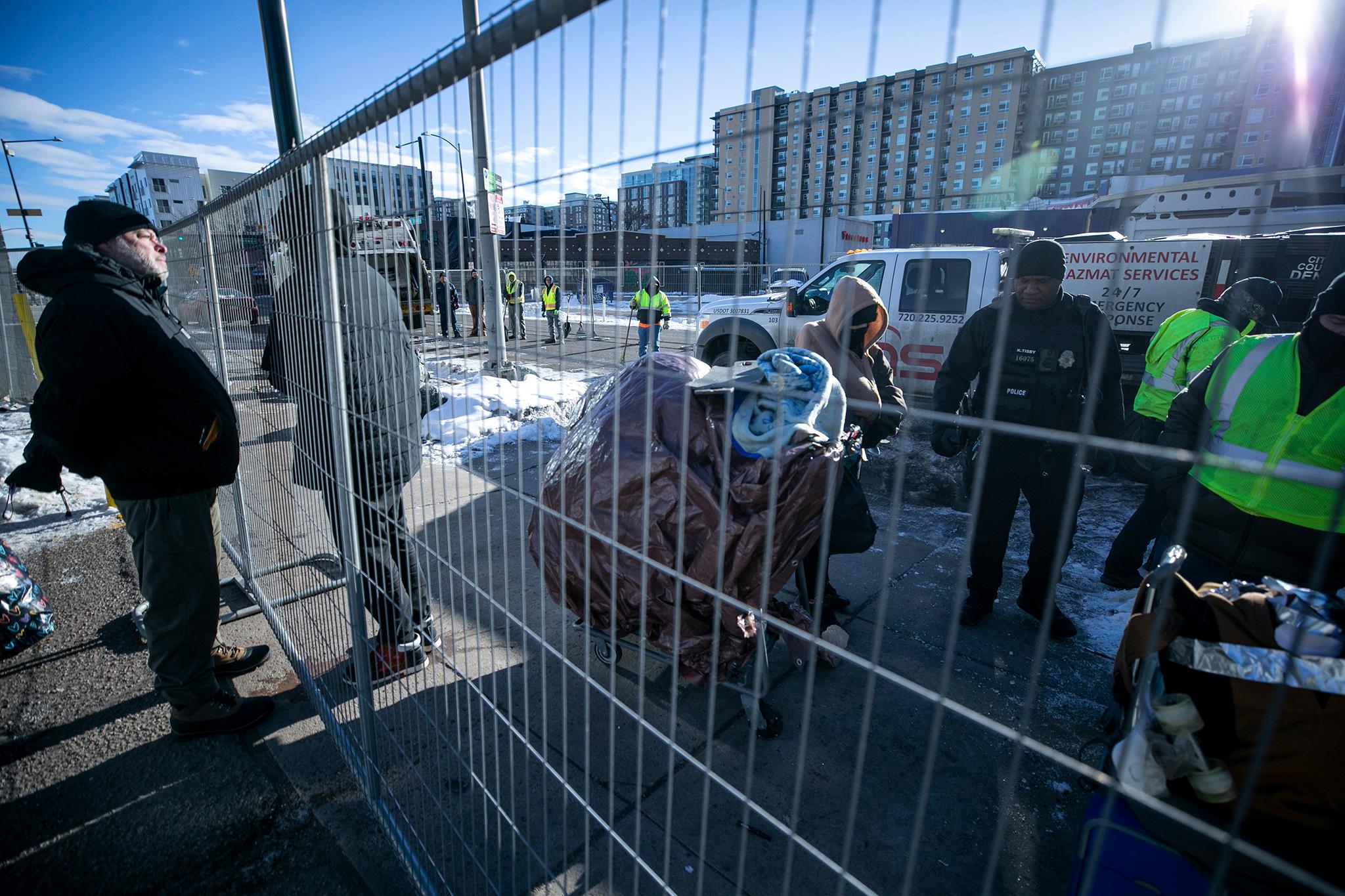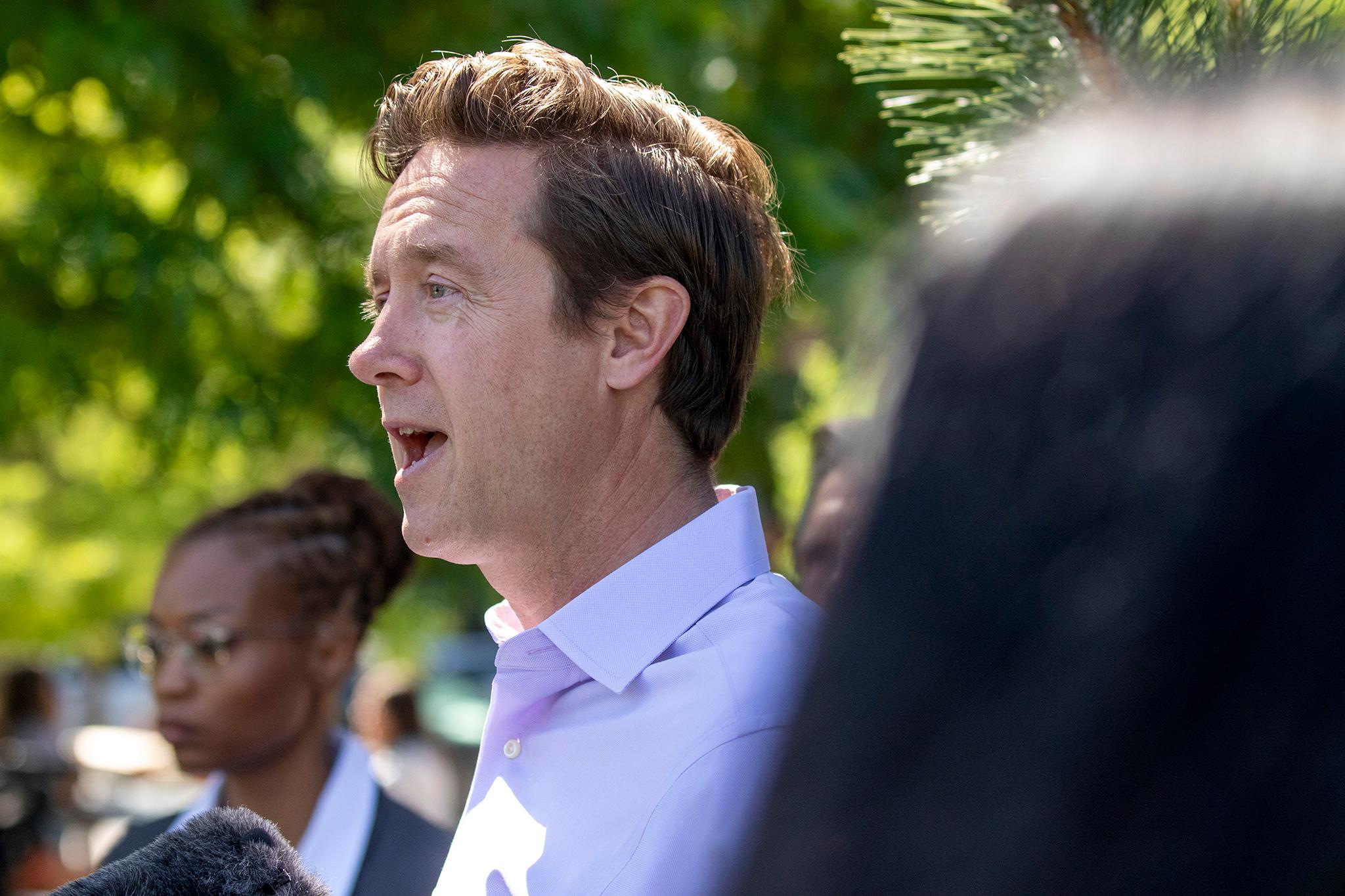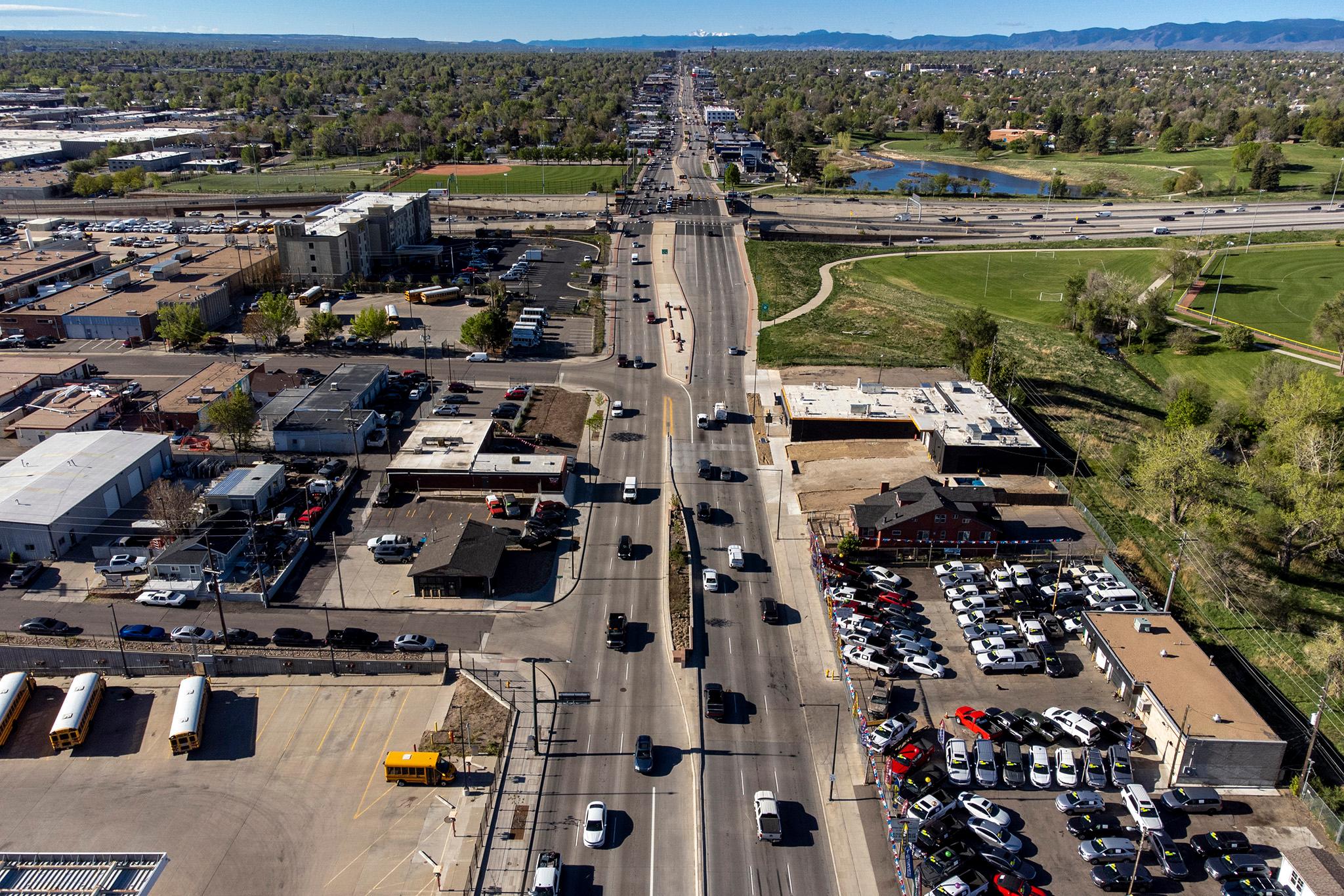At a Monday morning roundtable with homelessness advocates, Mayor-elect Mike Johnston said he loved "unvarnished feedback," and that's exactly what he received about his own plans and the city's current approach to solving the issue.
The meeting was held at the day shelter the Network by Cole Chandler, the former director of the Colorado Village Collaborative and the director of homelessness initiatives for the state. He said he was acting as an individual.
Johnston spent most of an hour listening and asking questions of people in the field about what's working and isn't and how the city could better support the efforts of outreach workers.
Medical doctors from Denver Health and the University of Colorado Anschutz Medical Campus, staff from Urban Peak, the Denver Rescue Mission, the Colorado Safe Parking Initiative, Urban Mercy and Mile High Ministries, and the head of the Colfax Business Improvement District were among those present.
Attendees discussed the struggles they face connecting with unhoused residents who are constantly punted around town by sweeps that disrupt individual dignity. Advocates also criticized the city for setting unrealistic goals in housing people and investing too little money in solutions.
Several addressed the challenges of rapidly opening safe occupancy sites -- sanctioned encampments -- and tiny home villages that serve as temporary housing with wraparound services and sometimes work as a launchpad to more permanent housing. Too often, they said, the city gets in the way and slows the process.
When Johnston stated the tiny homes he put at the center of his campaign could be built within two weeks, several participants chortled, knowing how long such programs have taken to open under Mayor Michael Hancock's administration.
Zoning, permitting and securing neighborhood permission have all interfered with advocates' ability to build these programs to scale quickly.
"I think the biggest challenge in terms of getting to scale and the biggest opportunity for the city is really leadership," Chandler said. "The city's response and role alongside a lot of these service providers has been: 'We'll help you do what you want to do.' It's a commendable bottom-up approach. But in order to get to scale, there has to be a different type of leadership of the city saying, 'This is where we want to go. This is the vision. This is the direction. This is how we're going to get there. And we're going to help you, and we're going to play a leadership role.'"
Advocates addressed the importance of providing clean water, sanitation and public restroom services to the public to make an immediate impact on the quality of life in the city and specifically for unsheltered residents.

While Johnston talked about his aspirational goals in building more housing, advocates cautioned him that building a project with Low-Income-Housing Tax Credit funding can take five to six years.
Dr. Sarah Rowan, an infectious disease specialist at Denver Health, said that the city will be making a mistake if services are limited to people who don't use drugs. Individuals need private homes and fewer rules, if they're going to participate in programs, advocates argue.
"Not everybody wants to be in recovery right now," Rowan said to Johnston. "If we only treat people who are in recovery, I think we'll still have homelessness at a pretty large scale."
Dr. Josh Barocas, from CU Anschutz, who this year published research that found encampment sweeps can decrease life expectancy for the unhoused, encouraged Johnston to change the narrative about how people discuss homelessness and what it means to create safe occupancy sites and tiny home villages in neighborhoods.
Johnston invited the people at the table to be involved with his administration as he tackles the issue. He promised to lead, push all 11,000 city workers to prioritize addressing homelessness, and learn along the way.
"I will not lose track," he said.
Not all major partners in homelessness outreach were at the table.
The Colorado Coalition for the Homeless wasn't in the room due to outside conflicts, but spokesperson Cathy Alderman said the organization was invited and hoped to be part of any future meetings.
Also missing were the Harm Reduction Action Center and the Housekeys Action Network Denver (HAND).
"I think it's important to bring the Harm Reduction Action Center to the table and even the Housekeys Action Network to the table, the folks who are really, I think, going to be able to reach a lot of people that haven't otherwise connected with city programs or any other nonprofits," Rowan told Johnston.
HRAC has been a leading voice in drug policy at the State Capitol and in the city.
The nonprofit runs a syringe exchange program and day shelter and works directly to improve the health of drug users -- even if they want to keep using.
The group's executive director Lisa Raville said Kelly Brough, Johnston's runoff competitor, toured the facility. Johnston and his team have not contacted the organization or met with its members with deep experience with some of the toughest issues facing unhoused residents.
Raville had a message for Johnston: "We are in the worst overdose crisis we have ever been in and is the leading cause of death of our unhoused neighbors in Denver for the last six years, at least. Call me, we need to chat."
The Housekeys Action Network Denver has been a frequent critic of and collaborator with Denver's Department of Housing Stability.
The organization has worked with the City of Denver and homeless service providers in sheltering people who had lost their housing when federally-funded pandemic-era emergency action shelters closed. The group also published a major recent study about why homelessness solutions aren't working and what unsheltered people actually want.

Longtime Denver homelessness advocate Terese Howard said HAND met with Johnston virtually during the race, but the group was not invited to Monday's meeting.
So what does Howard want Johnston, a proponent of the Hancock-era urban camping ban, to know?
"Pushing people from block to block is utterly ineffective, utterly traumatizing, utterly destructive on people's lives," Howard said. "And that's been the approach of the Hancock administration as well as many others -- to basically use police and shelters to try to hide visible homelessness, and that's not working."
Howard was involved in creating the first tiny home village in Denver. While she sees the value of such emergency projects, she wants to see Johnston's administration use the city's resources to master lease apartments -- the kind of homes people say they need.
She's also concerned that the tiny home villages, like shelters, will have rules that will make them challenging for some people to use.
"We have the resources to actually invest in the kind of housing that people really want long term instead of in this sort of 'temporary' type of thing," she said. "We're putting all these resources into these 'temporary' tiny homes. Especially when we're talking about building homes that have to be moved all the time, you're blowing a s***-ton of resources that could be going towards people just being in regular apartments."
The mayor-elect and the Department of Housing Stability had a planned meeting later in the day to discuss the city's homelessness policy. Denverite asked if we could tag along but were told no.
"The meeting with HOST is gonna be closed," wrote Johnston spokesperson Jordan Fuja. "It's the first intro meeting, and we just wanna make sure they feel comfortable sharing the actual struggles and issues that they're facing. That being said, we're going to do public hearings with every single department over the next 5 weeks that are gonna be open to everybody."
Meetings between the administrative staff of a mayor and a public body are not subject to the open meetings law, according to Jeff Roberts, head of the Colorado Freedom of Information Coalition.
And Denver Post editor Greg Moore, who's serving on Johnston's transition team along with other big names, said such access would be unprecedented.
"Mike and the transition team are deeply committed to transparency, and will be holding countless open meetings over the next five weeks to discuss the future of the city and individual departments," Fuja said. "These introductory meetings to current department heads are private to ensure an open and honest conversation between the Mayor-Elect and the current leads about department struggles and opportunities for growth."
Couldn't hurt to ask, right?











